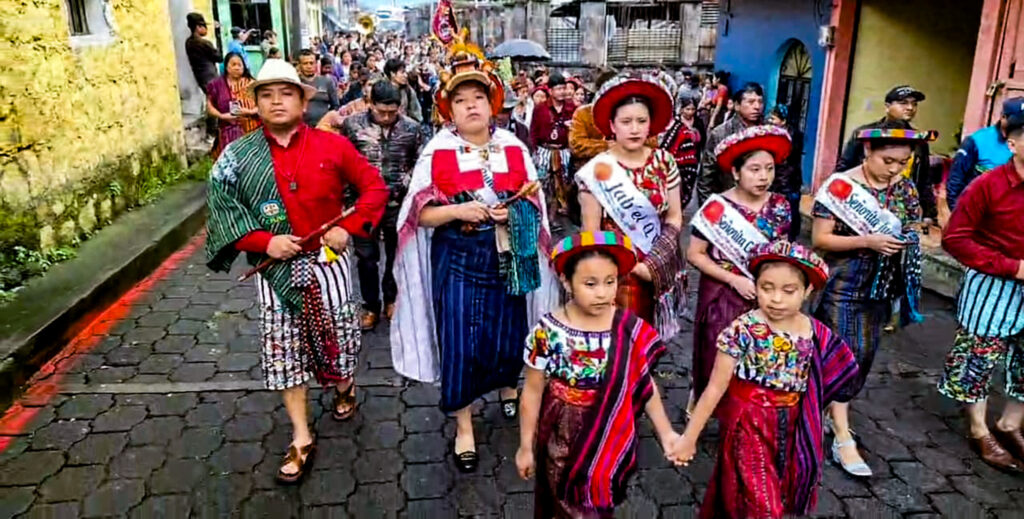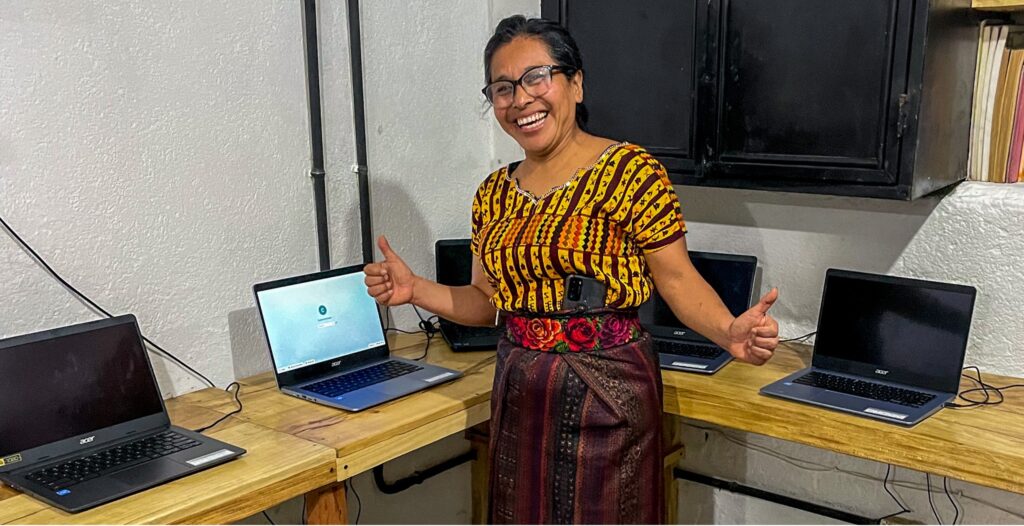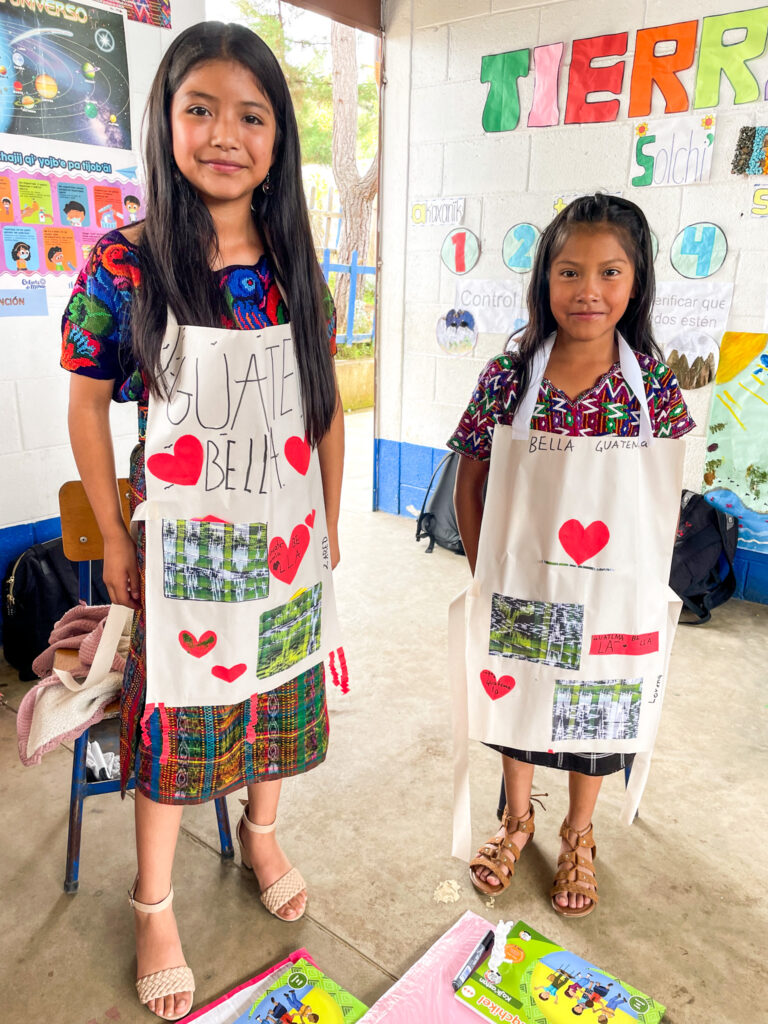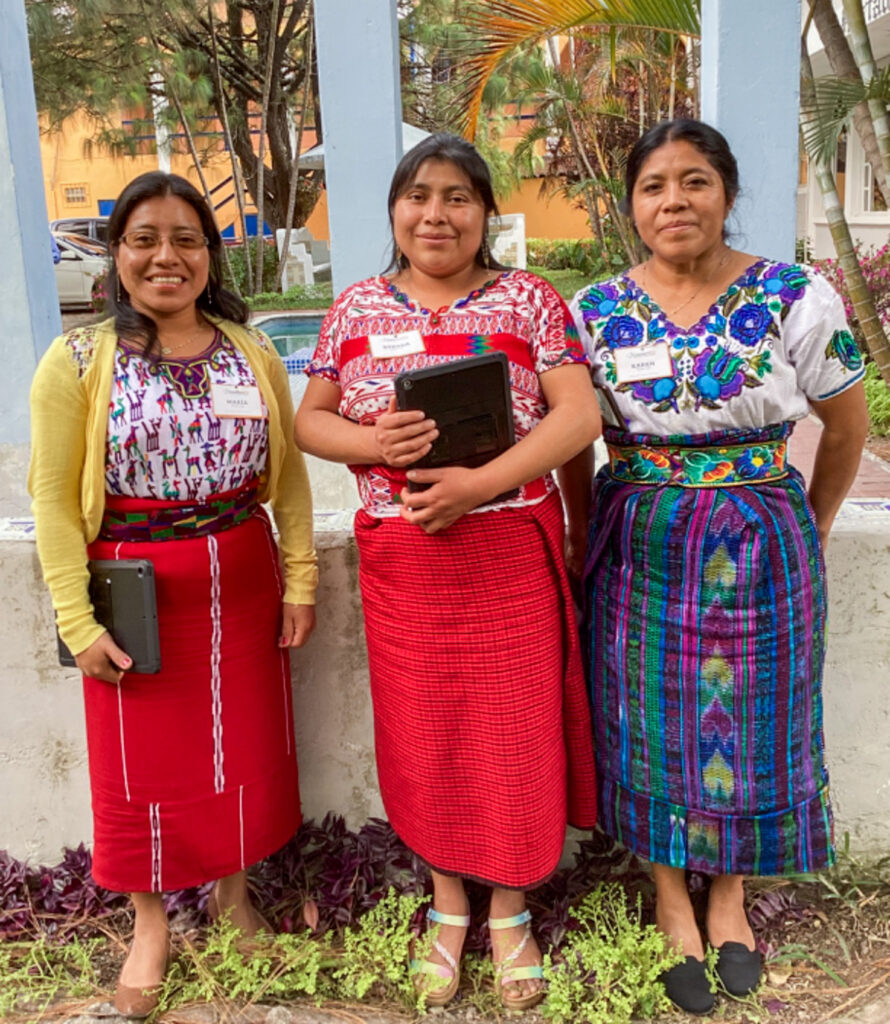Like many countries, Guatemala has a history of discrimination against indigenous populations, especially women. Nearly four million indigenous women in Guatemala are marginalized from the economy, excluded from educational opportunities, and underrepresented in political power. Data reported through UN Women shows that only 1/10 of indigenous women in Guatemala work in the formal sector, earning 12% less than indigenous men and 29% less than non-indigenous men. The literacy rate for Indigenous women is 66.7%, compared to 78.21% for Indigenous men. In 2019, only three out of 160 deputies in Congress were indigenous women[1].
ConnectED Fellow Ismael Tacaxoy and Verónica Sic Garcia discuss the importance of empowering Indigenous women to combat the discrimination and lack of spaces for women to lead in their communities and how representation in educational settings influences female students’ future aspirations. Ismael, a teacher and principal of a public school in Santiago, Atitlan, and Verónica, who has retired after over 30 years of experience in education, share their perspectives.
For Ismael, fostering a love for indigenous culture within educational settings is crucial. “I love my culture, I love who I am, and I want to fortify the love for my culture in all spaces, including educational settings,” he explains. He emphasizes the importance of showing young girls that women can hold important roles in society, combating the norm that only men should study while women prepare for domestic roles. Empowerment is crucial in a context where cultural expectations often dictate that younger girls should focus on becoming good wives and starting a family rather than pursuing higher education and careers. Ismael notes that currently there are low school enrollment rates amongst the girls and believes reinforcing an environment where girls know they are supported in their educational and leadership journeys can increase their participation in class and extracurriculars.

Similarly, Verónica highlights that indigenous girls trust teachers who share their cultural background. She notes that girls feel more comfortable and less reserved with Indigenous teachers, especially when language barriers are present. “It’s very important to be proud of being Indigenous. The girls trust a teacher from their own culture more.” This connection helps ensure students that they can express themselves and engage more fully in their education. She shares that the earlier the girls connect with their teachers, the better.
Both Ismael and Verónica share that female teachers are critical role models for young girls, positively influencing their aspirations and self-confidence.”Students tend to copy their teachers, dressing like them and aspiring to be teachers themselves,” Veronica says, highlighting the importance of representation.
The impact of female educators extends beyond the classroom. Ismael shares that seeing female teachers inspires girls to participate in sports, music, and student government. “In my school, the student government president is a young girl, and her cabinet is made up of boys,” he proudly states. This representation encourages girls to develop leadership traits and confidence that will benefit them beyond their school years. He states that little girls like the one in the student government stand out, especially in a country where discrimination against Indigenous women still exists. For the girls who have these extracurricular experiences, it can help them carry that same confidence outside of school and equip them with the leadership traits to create the future they desire, despite the adversities they face.

In addition to empowering girls, Veronica stresses the importance of empowering and preparing indigenous women to be community leaders. She shared her experience in taking part in women–only councils and how she believes these groups and training programs can equip female teachers and women in general with the skills to engage with city officials and make leadership moves. “These groups motivate women to participate in community decisions, inspiring girls to see these roles as attainable,” she explains. This empowerment can break the cycle of exclusion and allow more women to step into leadership roles.
Empowering Indigenous women in Guatemala, especially in education, has profound impacts. Representation boosts young girls’ confidence and aspirations, fostering inclusivity and equality. Creating spaces for Indigenous women to lead changes the norms and opens opportunities for future generations. Ismael and Verónica’s experiences highlight education’s transformative power and the importance of representation in building a more equitable society.


Bibliography
- 1.Vaeza MN. Indigenous women in Guatemala don’t ask for permission, and they speak up [Internet]. UN Women – Americas and the Caribbean. 2022. Available from: https://lac.unwomen.org/en/stories/news/2022/08/las-mujeres-indigenas-de-guatemala-no-piden-la-palabra-la-toman
